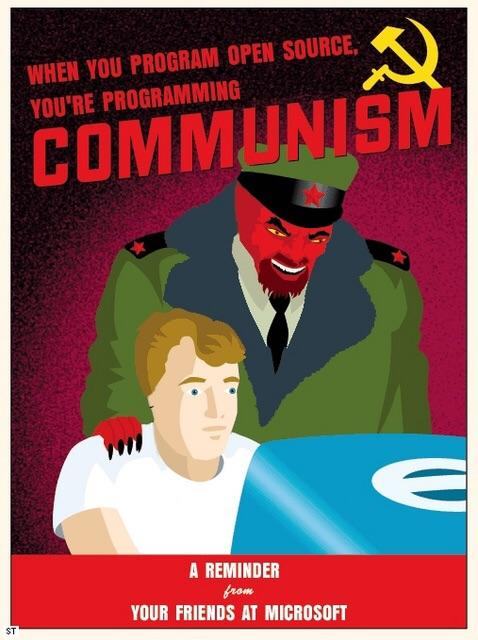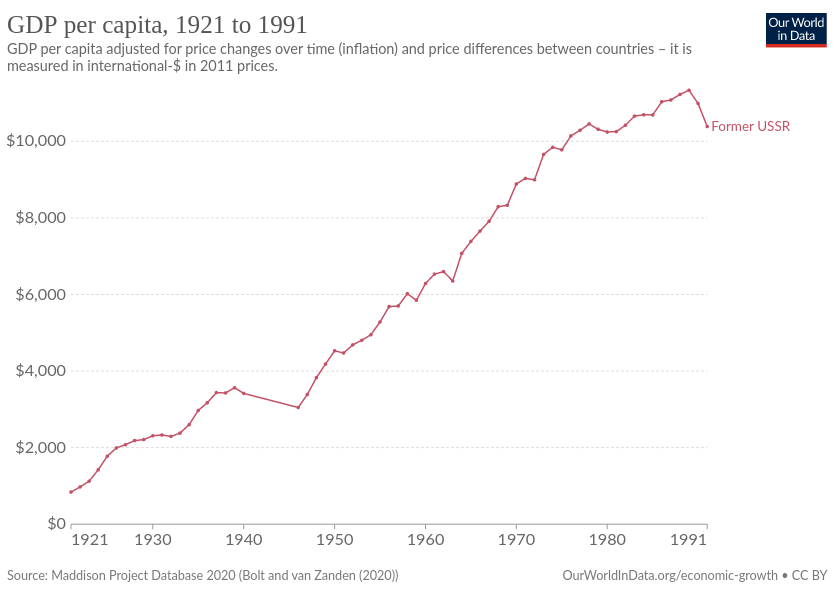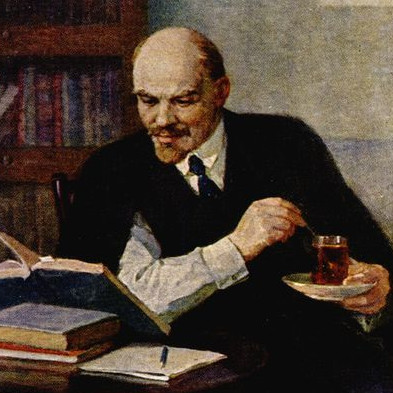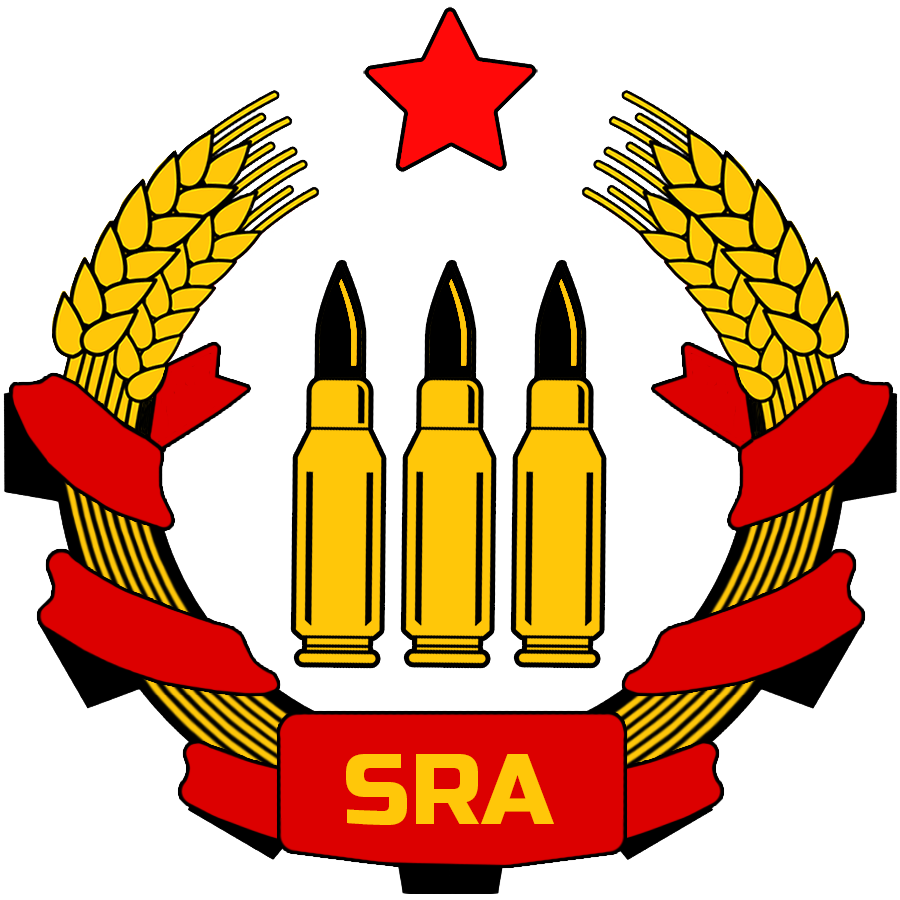Preston Maness ☭
Also on masto: https://octodon.social/@aspensmonster
Keyoxide: https://keyoxide.org/79895B2E0F87503F1DDE80B649765D7F0DDD9BD5
- 10 Posts
- 147 Comments

 6·2 months ago
6·2 months agoCEO = Stochastic Parrot. Got it.

 2·2 months ago
2·2 months agoYou won’t see this, but… the Lemmy devs are Marxists, not right-wingers. Lemmygrad is definitely Marxist (Leninist). Lemmy.ml is left-wingers of all types.

 161·2 months ago
161·2 months agoThe companies hawking e-cars have much larger advertising accounts with NYT than those hawking e-bikes.
 2·2 months ago
2·2 months agoDitto. /c/hail_corporate is deleted now. I squatted /c/socialistra during the reddit migration wave – the original subreddit was never officially a project of the Socialist Rifle Association and had been the source of some grief for the org (and I didn’t want to see the same thing happen on Lemmy) – but I’ll leave it to admins to decide its fate.

 8·2 months ago
8·2 months agoIIRC, some of these “MAGA communists” were originally contributing to ProleWiki before ProleWiki booted out the patsocs.

 5·2 months ago
5·2 months agoIt’s better medicine for a ton of things than most pharmaceutical drugs
That’s a bold claim commonly made by hucksters of all sorts. It has its documented medical uses, but as others have mentioned, it’s no panacea.
Edit: Whaa? No sound? NOOOOOOOOOOOOOOOO
Fuck it. See it with sound at my twitter https://twitter.com/aspensmonster/status/1782961136230338804

 2·3 months ago
2·3 months agoThe gold filter was good and you should say it.

 4·3 months ago
4·3 months agoMeanwhile, BOINC is right there, with far more useful work for your idle GPU to do.

 2·3 months ago
2·3 months agoMy strategic reasoning is that I think it’s counterproductive to advocating for an end to the embargo to meet with the head of a state that will credibly be accused of authoritarianism.
Holy shit. It’s literally just “muh authoritarianism.” And coming out of some of the more powerful caucuses too. This is the best the DSA can muster?
“Deeply unserious people,” indeed.

 10·3 months ago
10·3 months agoOn the other hand, i also think that sometimes this community uses “patsoc” in the same way, as a label that allows us to put someone in a box, associate them with positions they may not even hold and then entirely dismiss them. It reminds me of the way that liberals throw around “tankie”.
Is there an example of someone prominent being called a patsoc erroneously? Because I think MidwesternMarx is certainly deserving of that title. Their main spokesperson, Eddie Smith, consistently defends and aligns with other patsocs like Jackson Hinkle.
We should be careful not to fall into that same trap ourselves of overusing a poorly defined derogatory term that just generalizes and dismisses everyone on the left we don’t agree with
I don’t think it is poorly defined. It indicates a right-deviationist strain of political thought that exhibits one or more of (a) revisionism (see Jackson Hinkle claiming that communists don’t want to abolish private property), (b) opportunism (in the form of accommodating rather than correcting reactionary view points amongst the proletariat), or (c) chauvinism (the rejection of self-determination for the United States’ marginalized communities, such as the indigenous population or the Black Belt).
https://en.prolewiki.org/wiki/Patriotic_socialism
https://en.prolewiki.org/wiki/Jackson_Hinkle

 5·4 months ago
5·4 months agoOh boy. The Big Bad ECP (Economic Calculation Problem). As @AnarchoBolshevik@lemmygrad.ml implies, you need a certain tolerance for pain to dig into this one (and really anything put out by the Austrian school). I guess I’ll first take a look at the video’s description, since it does have a few paragraphs on the matter.
In this video, I discuss the Economic Calculation Problem (ECP), a problem in economics that shows why socialism is impossible. The ECP was first proposed by Ludwig von Mises, a leading Austrian economist, and it shows that a socialist economy cannot function because it lacks the market prices and information needed for economic calculation and planning. We explore this problem using the example of the Soviet Union, which was a socialist economy that ultimately failed because of its inability to solve the ECP. This video is a must-watch for anyone interested in economics, libertarianism, socialism, and the history of economics.
We’ll start with Wikipedia then, because the ECP does not show “why socialism is impossible.” (Also, stating that the USSR failed “because of its inability to solve the ECP” is particularly reductive and wrong, but not the main topic of discussion here).
In his first article, Mises described the nature of the price system under capitalism and described how individual subjective values (while criticizing other theories of value) are translated into the objective information necessary for rational allocation of resources in society.[1] He argued that economy planning necessarily leads to an irrational and inefficient allocation of resources.
…
Mises and Hayek argued that economic calculation is only possible by information provided through market prices and that bureaucratic or technocratic methods of allocation lack methods to rationally allocate resources. Mises’s analysis centered on price theory while Hayek went with a more feathered analysis of information and entrepreneurship.
…
In the 1920 paper, Mises argued that the pricing systems in socialist economies were necessarily deficient because if a public entity owned all the means of production, no rational prices could be obtained for capital goods as they were merely internal transfers of goods and not “objects of exchange”, unlike final goods. Therefore, they were unpriced and hence the system would be necessarily irrational as the central planners would not know how to allocate the available resources efficiently.[1]
In short, the ECP’s claims are that
- Individual subjective values are translated into the objective information necessary for rational and efficient allocation of resources in society (and that only subjective values can be translated into said “objective” information).
- Such translation of subjective values into objective information can only occur via market prices.
- Said markets must be free of public ownership and must consist of decentralized actors working with objects of exchange.
At best, these claims can be construed to say that socialist economies – well, fully planned socialist economies – are necessarily irrational and inefficient (of course according to bourgeois definitions of rationality and efficiency, but that’s beside the point), not that they fail at a fundamental level. More to the point, these are all very broad and strong claims about a number of facets of economics (that all, incidentally, coincide with laissez-faire, free-market capitalism; not surprising given that the ECP is a product of the Austrian school).
The evidence for each of these claims falls short without even needing to dip into socialist economic theory; the existing history of capitalist economies is more than sufficient to undermine each claim. Chiefly, the capitalist United States during World War II engaged in substantial economic planning, devoting tens of thousands of people to the task of coordinating US civilian and military industry towards the goal of defeating the Axis powers via the War Production Board and Office of War Mobilization (and other organizations as well). Incidentally, this period saw rapid growth of the economy. This single example handily undercuts each of the ECP’s claims.
I explain how the ECP shows that a socialist economy cannot function because it lacks the market prices and information needed for economic calculation and planning. I also discuss the socialist calculation debate, which was a debate among economists about whether a socialist economy could overcome the ECP and achieve economic efficiency.
Again, “cannot function” is overreaching here. The claim ought to be that socialist economy is irrational and inefficient, not that it “cannot function” at all.
One of the key arguments made by proponents of the ECP is that a market economy is necessary for economic calculation and planning. In a market economy, prices are determined by the interaction of supply and demand, and this information is used by producers and consumers to make economic decisions. In contrast, a socialist economy lacks market prices, and this makes it impossible to calculate the costs and benefits of different economic choices.
A restatement of claims (1) and (2). Ok.
Another key argument made by supporters of the ECP is that a socialist economy is inherently inefficient. In a market economy, competition drives producers to constantly improve the quality and price of their goods and services. In a socialist economy, there is no competition, and this means that there is no incentive for producers to innovate and improve. As a result, a socialist economy is likely to be less efficient than a market economy.
A restatement of claims (2) and (3). Ok.
In the Soviet Union, the failure of socialism was particularly evident. The Soviet Union was a socialist economy that was plagued by inefficiency and shortages. Despite the government’s efforts to implement economic planning, the Soviet economy was unable to overcome the ECP and achieve economic growth. Ultimately, the Soviet Union collapsed and transitioned to a market economy.
To say that the USSR was “unable to … achieve economic growth” is flatly wrong. It achieved growth throughout nearly the entirety of its existence:

This growth occurred during the period of Lenin’s NEP, on through Stalin’s strong central planning, on through Khrushchev’s de-Stalinization, all the way through Brezhnev and up to Gorbachev, who, ironically, with his perestroika policies that meant to liberalize the economy, ultimately gave way to the total collapse of the union. Yeltsin’s continued “shock therapy” after the collapse further strained the then-capitalist country’s economy, resulting in an economic contraction that took a decade for the Russian Federation to climb out of and saw a massive decline in standard of living for the working class. (For a detailed analysis, Michael Parenti’s Blackshirts and Reds is a good start.)
The typical line given by liberals is not that the USSR did not grow, but that “it could have grown faster if it was capitalist.”
The ECP shows that socialism is impossible because it lacks the market prices and information needed for economic calculation and planning. The socialist calculation debate and the example of the Soviet Union demonstrate the practical implications of this theory, and support the idea that a market economy is necessary for economic efficiency and growth.
A restatement of the false claim from the prior paragraph.
At this point, we mostly have claims, with little evidence given beyond “but the USSR.” And what little has been said about the USSR so far is plainly wrong. However, I still have yet to watch the video. I will do so and see if it attempts to account for the United State’s economic planning during World War 2.

 3·5 months ago
3·5 months agoComrade ✊
 4·5 months ago
4·5 months agoIdaho Department of Correction director Josh Tewalt determined the execution could not happen because the medical team could not establish an IV line.
Using language like “the medical team” is disingenuous. Actual healthcare professionals would be violating their oaths if they were to participate in lethal injections like this. Sometimes states can find healthcare professionals willing to take on the job despite their oaths, but typically, it’s corrections officers that get tasked with trying to cosplay as healthcare professionals in these scenarios.

 10·5 months ago
10·5 months agoOur local PSL chapter used a private Nextcloud instance for most organizing efforts. For what it’s worth, PSL national did start up an IT security protocol that chapters were supposed to be moving towards, with detailed guides for setting up various online infrastructure in a secure way. Out of all the socialist orgs I’ve been a member of, the PSL has ultimately been the one most interested in tightening digital security. DSA is Google Docs central (and Slack). SRA is Discord all the way down.
It looks like a summary (“Insight”) of the same paper:
This Insight is based on a study that seeks to address this gap, offering a comprehensive examination of a left-wing extremist community on Reddit known as ‘tankies’.
STAR Voting fails the Later-No-Harm criterion, which makes it a no-go for me. Any voting system that can have lesser ranked candidates siphoning off support from higher ranked candidates is, for me at least, a fundamentally broken system that ultimately just reverts to FPTP when people start bullet voting to avoid that flaw.
Oh. This is the same article that we tore to shreds several months ago back when it first popped up on arxiv:











I’d rather trust a human to translate sensitive political documents. The website has an English section, but it doesn’t look like this entry has been translated. At least, I couldnt find it after searching for “palestine” or “gaza” on the English page and looking for something dated 2024-05-31.